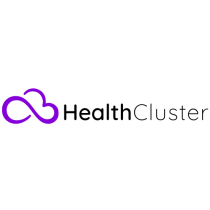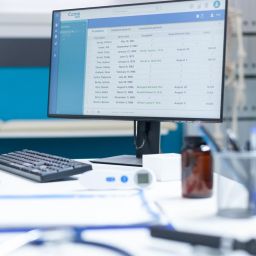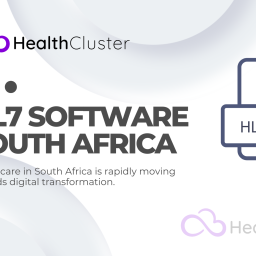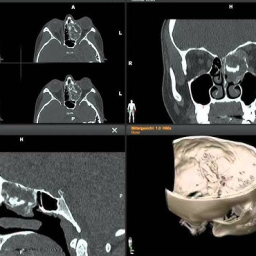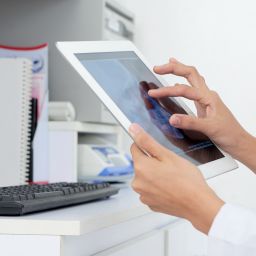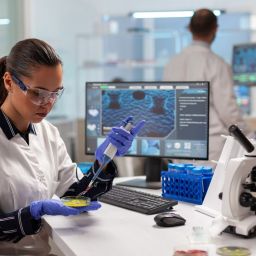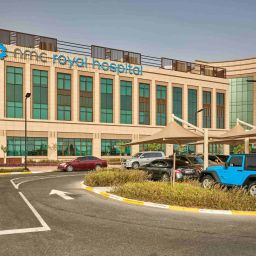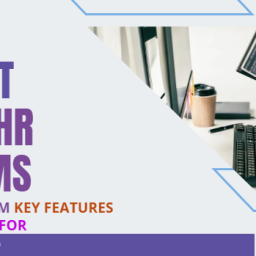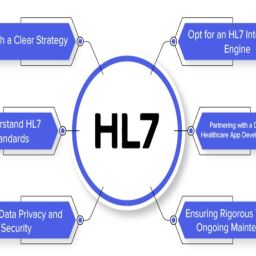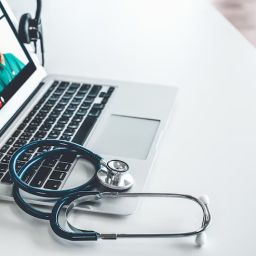
What is HL7 in Riyadh, Saudi Arabia?
What is HL7? Health Level Seven (HL7) is an international set of standards developed to enable healthcare data exchange between systems. In Riyadh, Saudi Arabia, HL7 is increasingly important as digital healthcare solutions like EMRs and hospital systems expand rapidly.
HL7 provides a common language and framework to interconnect different health systems, which enhances efficiency, accuracy, and data interoperability between hospitals, labs, clinics, pharmacies, and health authorities.
What is Health Level 7 (HL7) – A Global Healthcare Standard
What is Health Level 7? It is a standard developed by the Health Level Seven International organization, designed for the exchange, integration, sharing, and retrieval of electronic health information.
The term “Level 7” refers to the seventh layer of the OSI model – the application layer – where software applications communicate. HL7 governs how healthcare applications exchange clinical and administrative data securely and accurately.
In Saudi Arabia, especially in Riyadh, HL7 standards are increasingly integrated into public and private health sectors to achieve Saudi Vision 2030’s digital health goals.
What is HL7 Integration in Healthcare Systems?
Connecting Healthcare with HL7 Integration
What is HL7 integration? HL7 integration refers to the process of connecting multiple healthcare systems so they can seamlessly exchange patient data.
For example:
- A lab system sending test results to a hospital EMR.
- A pharmacy system receiving prescriptions from a doctor.
- A radiology unit pushing X-ray results to a physician’s portal.
Riyadh’s healthcare infrastructure is becoming increasingly digitized. To support this, HL7 integration is critical in connecting EMRs, EHRs, PACS, and telemedicine platforms across different hospital networks and ministries.
What is HL7 Interface?
Bridging Medical Software with HL7 Interfaces
What is HL7 interface? It is a software interface that allows healthcare applications to communicate using HL7 standards.
For instance:
- If a hospital’s lab system and EMR use different software vendors, an HL7 interface acts as a bridge, converting data formats into HL7-compliant messages.
There are two types of HL7 interfaces:
- Unidirectional: One-way data flow (e.g., lab to EMR).
- Bidirectional: Two-way communication (e.g., EMR sends orders to lab; lab sends results back).
In Riyadh’s modern hospitals, HL7 interfaces are essential for multi-system communication, especially across government health departments and insurance systems.
What is HL7 in Healthcare – Saudi Arabia’s Perspective
What is HL7 in healthcare? It is the backbone of digital communication in modern medical systems. HL7 allows:
- Timely and accurate patient record updates.
- Interoperability between EMR, LIS, RIS, PACS, and insurance systems.
- Real-time access to lab results, discharge summaries, and clinical notes.
Saudi Arabia’s Ministry of Health (MOH) and private health providers in Riyadh are actively pushing for HL7-compliant systems to standardize data sharing and streamline national health records.
This makes it easier to:
- Monitor chronic diseases.
- Improve patient outcomes.
- Support national health surveillance.
What is HL7 Standards – Key Versions & Protocols
HL7 Versions and Their Use in Riyadh Hospitals
What is HL7 standards? These are rules and formats defined by HL7 International to guide healthcare software developers.
There are two main HL7 versions used today:
- HL7 v2.x: Most widely used in Riyadh hospitals; supports messaging like ADT (Admission/Discharge/Transfer), lab results, and billing.
- HL7 v3: More structured and supports XML-based communication.
- FHIR (Fast Healthcare Interoperability Resources): A newer HL7 standard using modern web technologies like REST APIs and JSON; ideal for mobile health apps and cloud-based EMRs.
Saudi Arabia is increasingly exploring FHIR as part of national eHealth transformation strategies for better patient mobility and smart healthcare apps.
HL7 Implementation in Riyadh: Public & Private Hospitals
Riyadh’s top hospitals such as:
- King Saud Medical City
- King Fahad Medical City
- Dr. Sulaiman Al Habib Hospital
- Specialized Medical Center
…are adopting HL7 protocols to improve interoperability, patient data accessibility, and service efficiency.
With systems like telehealth, ePrescription, and centralized health records, HL7 enables better coordination across facilities in Riyadh and beyond.
HL7 with Local Vendors – Example: iTackSolutions
In Riyadh and Pakistan, vendors like iTackSolutions provide HL7-ready EMR, EHR, and HMIS systems, ensuring easy integration and communication between health departments, labs, and insurance providers.
Choosing HL7-compliant vendors is critical for long-term digital health success.
HL7 Benefits for Healthcare Providers in Riyadh
- ✅ Real-time data sharing.
- ✅ Reduced human error.
- ✅ Enhanced patient safety.
- ✅ Lower administrative cost.
- ✅ Faster medical decision-making.
- ✅ Centralized records across Riyadh health networks.
HL7 Challenges and Future in Saudi Arabia
Data Security and Standardization
While HL7 supports digital health transformation, challenges in standardizing formats, localizing language, and ensuring cybersecurity remain.
With the rise in telehealth and remote monitoring, the Saudi healthcare system must continue investing in staff training, secure APIs, and national HL7 governance policies.
FAQs About HL7 in Riyadh, Saudi Arabia
1. What is HL7 and why is it important in Saudi hospitals?
HL7 is a standard for sharing healthcare data between systems. It helps Saudi hospitals connect different departments for efficient and safe care delivery.
2. What is HL7 integration and how does it work?
HL7 integration connects various hospital systems like EMR, lab, and pharmacy so they can automatically share patient data in real-time using HL7 messages.
3. What is HL7 interface and who uses it?
An HL7 interface is a middleware or connector that allows different health applications to communicate. It is used by hospitals, clinics, and labs.
4. What is HL7 in healthcare and how does it benefit patients?
In healthcare, HL7 improves care quality by allowing accurate, quick access to medical records, lab results, and patient histories across systems.
5. Are HL7 standards used in private hospitals in Riyadh?
Yes, private hospitals in Riyadh, such as Al Habib and Dallah Hospital, implement HL7 standards to ensure seamless integration and compliance.
Final Thoughts on What is HL7 in Riyadh
Understanding what is HL7 and how it works is essential for any healthcare provider, IT consultant, or hospital administrator in Riyadh. As Saudi Arabia aims to build a world-class digital health ecosystem, HL7 integration and interfaces will remain crucial tools in achieving data-driven healthcare.
Whether you’re implementing an EMR system, developing a mobile health app, or connecting lab results to hospital records, choosing HL7-compliant solutions ensures long-term success, efficiency, and scalability in the Saudi healthcare landscape.

